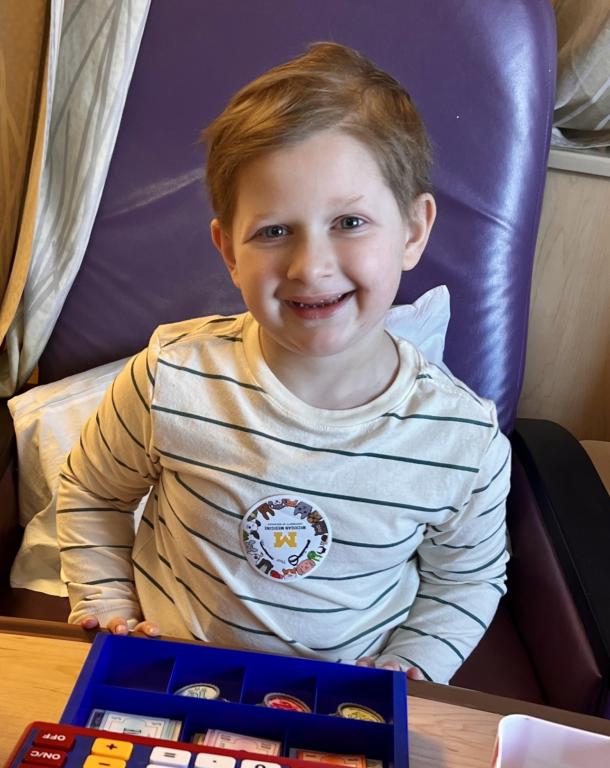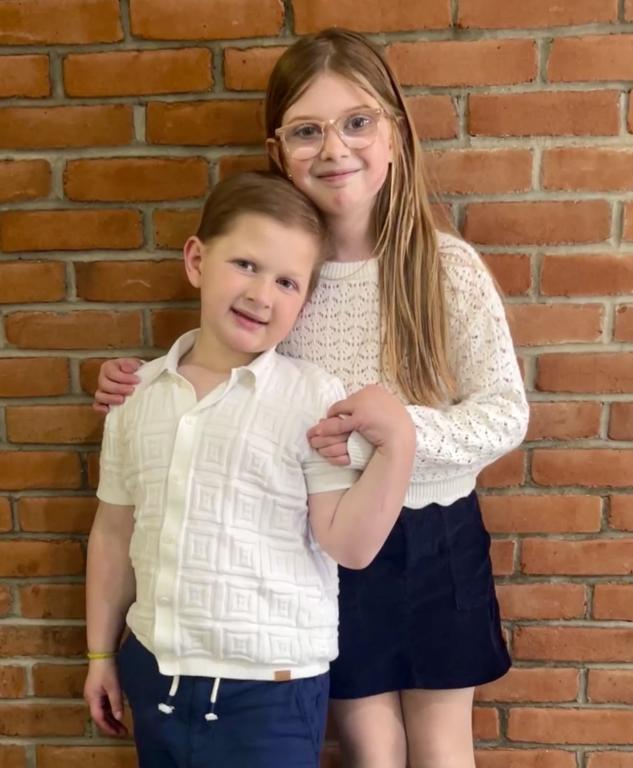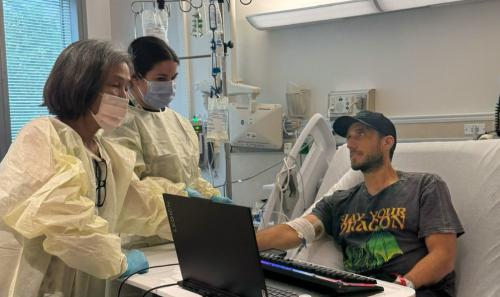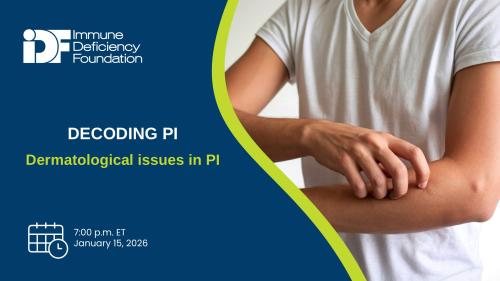
-
Understanding primary immunodeficiency (PI)

Understanding PI
The more you understand about primary immunodeficiency (PI), the better you can live with the disease or support others in your life with PI. Learn more about PI, including the various diagnoses and treatment options.
-
Living with PI
-
Addressing mental health
-
Explaining your diagnosis
- General care
- Get support
- For parents and guardians
-
Managing workplace issues
- Navigating insurance
-
Traveling safely

Living with PI
Living with primary immunodeficiency (PI) can be challenging, but you’re not alone—many people with PI lead full and active lives. With the right support and resources, you can, too.
-
Addressing mental health
-
Get involved

Get involved
Be a hero for those with PI. Change lives by promoting primary immunodeficiency (PI) awareness and taking action in your community through advocacy, donating, volunteering, or fundraising.
-
Advancing research and clinical care
-
Research Grant Program
-
Consulting immunologist
-
Diagnosing PI
-
Getting prior authorization
-
Clinician education
-
Survey research
-
Participating in clinical trials

Advancing research and clinical care
Whether you’re a clinician, researcher, or an individual with primary immunodeficiency (PI), IDF has resources to help you advance the field. Get details on surveys, grants, and clinical trials.
-
Research Grant Program

Evelyn Argirokastritis sat in a chair, exhausted and drowsy, next to her four-month-old son, pale and bald, in the bed beside her. Mother and son had arrived at the children’s hospital in the wee hours of the morning.
She sought answers as to why Elias suffered from severe rashes, tongue ulcers, hair loss, runny stools, and an elevated white cell blood count. Her mind swirled with all the possible diagnoses providers had posed—cancer, albinism, gastrointestinal disease, allergies. None of the doctors she’d seen at clinics and hospitals for months knew what caused Elias’ symptoms.
At 4 a.m., a doctor gently woke Argirokastritis.
“She said, ‘We reviewed everything that you’ve done for your baby—the hospitalizations, the appointments, your decision to bring him here.’ And I remember her putting her hands on my knees, and she said, ‘I just want you to know I hear you. I see what you've done, and we're going to figure this out.’ That was the first provider that admitted, ‘We don't know what's going on, but we're not going to stop trying,’ and in the past, everyone else was just trying to put a label on it and dismiss us,” said Argirokastritis.
“I knew then that Elias was in a really good institution because of their demeanor and how they approached parents and listened. I just felt I had a voice at that institution, so it was very important for me to continue to advocate for him there.”
After three months of Elias being at the children’s hospital, Evelyn and Antonio Argirokastritis finally learned what caused their baby’s failing health—nuclear factor-kappa B essential modulator deficiency syndrome, or NEMO. A very rare primary immunodeficiency (PI), NEMO can cause dry and thickened skin, absence of sweat glands, and thin, sparse hair. Those with NEMO are vulnerable to pneumonia, staph infections, and other viral and bacterial infections. Elias is the 22nd child to be diagnosed with NEMO.
In the months leading up to the NEMO diagnosis, Elias lived with life-threatening medical complications. Doctors needed to sedate him for a biopsy to determine what caused his lungs to collapse, even though he had a 10% chance of surviving the procedure.
“The anesthesiologist asked, ‘Do you think he has the fight in him?’ And I said, ‘I really do.’ It just showed me how severe the situation was, and as a mom, you feel like everything's in your hands,” said Argirokastritis. “But I also felt like I was in the best hands with all the doctors because they were advocating for him too, going back and forth and weighing the options. I felt they all had my back as well.”
Tests confirmed fungal pneumonia, allowing doctors to administer appropriate antimicrobial medication. Even so, Elias developed other infections and blood clots and required tube feeding to survive.
“It was a long diagnostic journey with so many ups and downs and lots of corners and twists with all the different infections,” said Argirokastritis.
Elias’ health stabilized after receiving immunoglobulin replacement therapy and prophylactic antibiotics. Between 8 and 15 months old, he gained weight, grew his hair back, and “glowed,” said his mom. After gaining strength, Elias prepared for the next step in his journey with NEMO—treatment with a bone marrow transplant (BMT).
The Argirokastritises utilized an international bone marrow donor registry because they had family in Greece, and an umbilical cord blood donation from France ended up providing Elias with the lifesaving stem cells he needed to develop a functioning immune system. Because the donor was only a partial match, however, Elias developed chronic graft versus host disease (GVHD), a condition where the body attacks the donor cells. He received the BMT in October 2018, went home before Christmas, and in January 2019, GVHD began to cause severe intestinal problems, red and peeling skin, and pneumonia.
His parents devoted themselves to their son’s care at home but as much as they tried, they couldn’t make Elias well. Nurses, who saw Elias several times a week for treatment, advocated for him to be hospitalized, and his parents agreed. That gave doctors time to discover that the best treatment to improve his GVHD was daily injections of the protein interleukin-2 (IL-2).

It took two years for Elias to recover from the GVHD, and then doctors slowly weaned him off medication over the following years. In January 2024, doctors removed Elias’ port after they weaned him off most medications. He is no longer considered immunocompromised but has regular visits with clinicians such as a gastroenterologist, cardiologist, and pulmonologist.
“We feel a sense of relief that he has an immune system that can protect him, but there are other aspects of other NEMO that require follow-up with specialists,” said Argirokastritis. “Still, we’re grateful that we’re at a point where we have more stays at home than in the hospital because there was a point in time where we stayed more in the hospital than at home.”
A first-grader, Elias is “full of life and willing to try new things,” said his mom. He likes to dance and scale indoor rock-climbing walls with his sister, Eleni, 15 months his senior. The siblings are very close, and Eleni’s compassion has influenced her younger brother.
“His teachers all love and adore him, and he's the first one to run and hug. He received the Care Award at school because of how kind he is, and he says hello to everyone every morning, passing them in the hallway,” said Argirokastritis.
Argirokastritis coped with the stress of Elias’ illness by starting a nonprofit, Race for Immunology, designed to help patients with rare immune-heme disorders and the providers who treat them. Race for Immunology assists families with funds for genetic testing related to diagnosis and plans to launch a patient education podcast in the summer. Argirokastritis thrives off helping families advocate for themselves by providing educational opportunities for patients and families affected by these disorders.
“NEMO families reach out to me and want to know how Elias is doing today. I'm always willing to have those conversations and share our experiences,” said Argirokastritis. “I also think that we as mothers and carriers need to connect and discuss similarities.”
Race for Immunology has also partnered with the North American Immuno-Hematology Clinical Education and Research (NICER), a consortium of multi-disciplinary clinicians and researchers who aim to advance the education, clinical care, and research of patients with immuno-hematologic disorders.
“Through our partnership with NICER, we have worked to provide educational opportunities for both patients and providers and raise awareness around rare diseases,” said Argirokastritis.
Argirokastritis said she doesn’t know what the next few decades hold for her son, but she and her family plan to remain educated on the latest research and stay involved through patient advocacy. For now, though, the Argirokastritises remain thankful for Elias’ good health.
“I just feel like we've made it through so much. Like, my shoulders are down here now, and they used to be up here,” said Argirokastritis, gesturing to her ears. “But now it’s better. He’s doing so good and we just love him so much.”
Related resources

Man with X-linked hyper IgM first-ever to receive novel gene therapy

Why PI affects the skin: Common rashes, infections, and immune dysregulation (dermatology deep dive)

Decoding PI: Dermatological issues in PI
Sign up for updates from IDF
Receive news and helpful resources to your cell phone or inbox. You can change or cancel your subscription at any time.





The Immune Deficiency Foundation improves the diagnosis, treatment, and quality of life for every person affected by primary immunodeficiency.
We foster a community that is connected, engaged, and empowered through advocacy, education, and research.
Combined Charity Campaign | CFC# 66309

